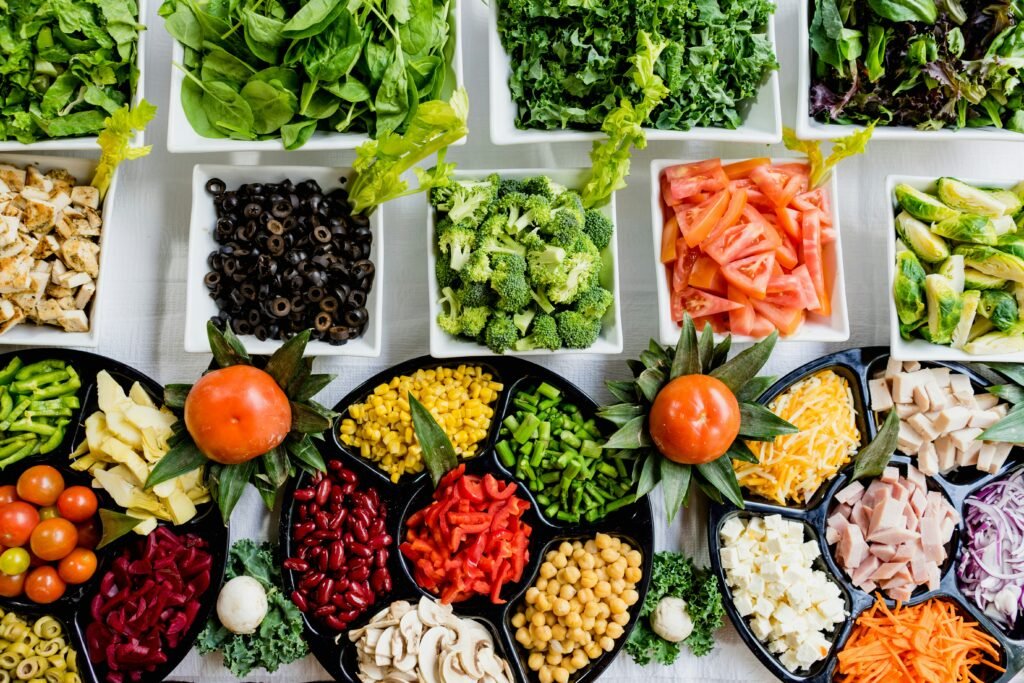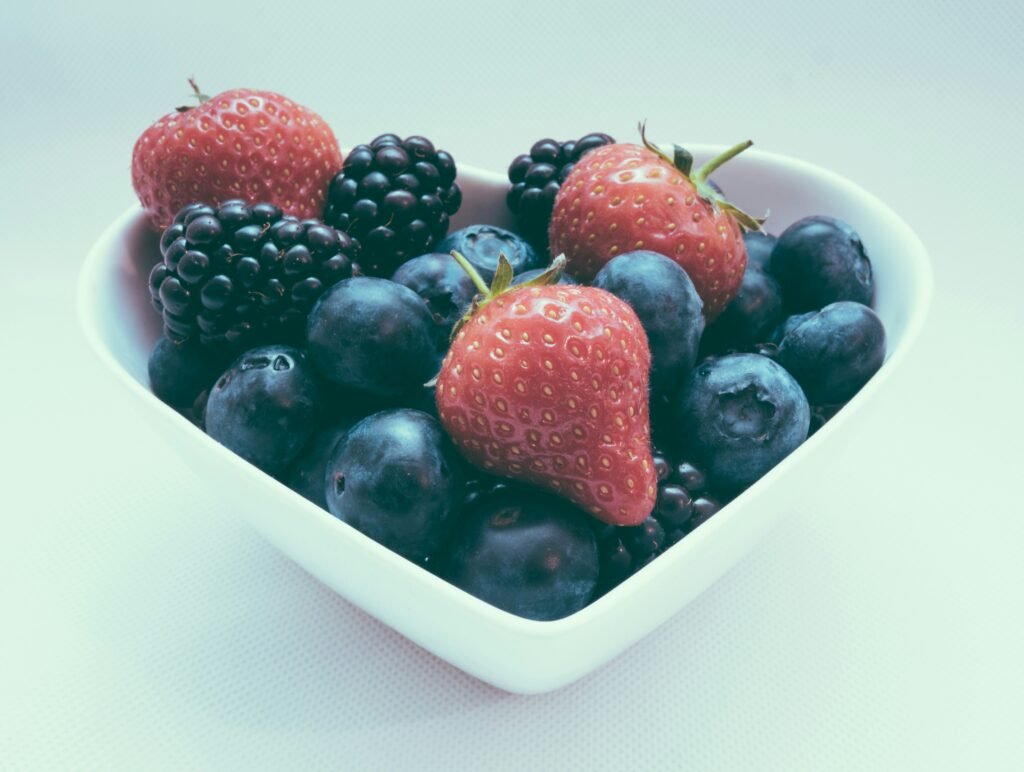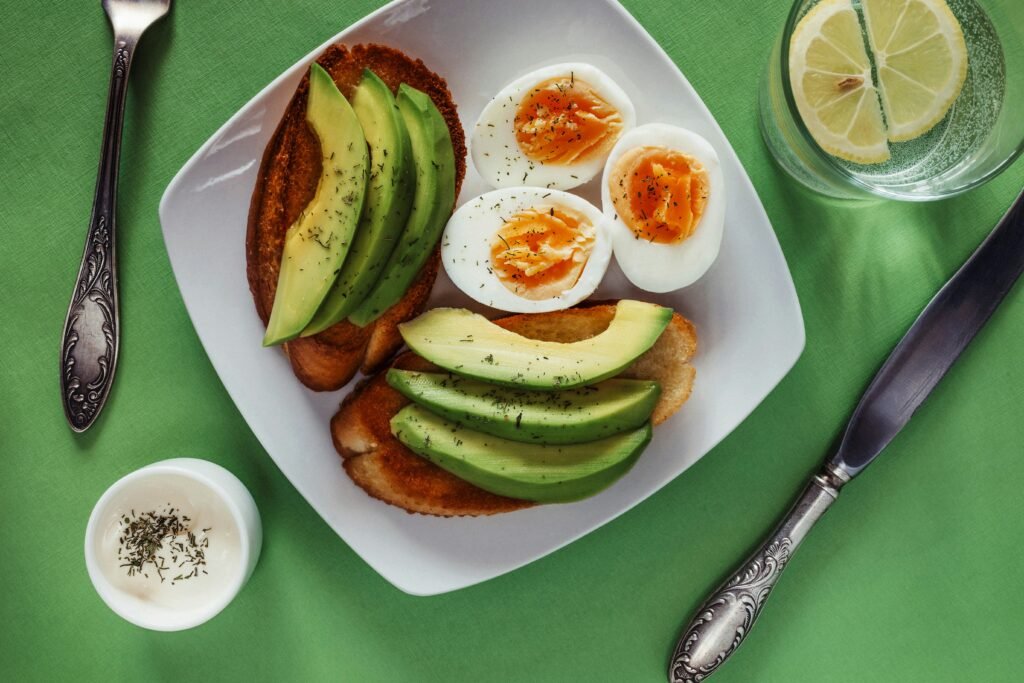Hello, wellness warriors!
Today, we’re diving into a comprehensive guide on a healthy diet for prevent disease and improve your overall well-being. With a bit of friendly advice and a sprinkle of fun facts, we’ll explore how making mindful food choices can be your best defense against illness. So, grab a comfy spot, perhaps a cup of green tea, and let’s embark on this journey towards a healthier, happier you!

Introduction
Our modern lives are fast-paced and often stressful, making it easy to neglect the importance of a balanced diet. Yet, the food we eat plays a crucial role in determining our health. A healthy diet not only keeps us energized and feeling good but also acts as a powerful tool in preventing numerous diseases. From heart disease to diabetes, and even certain cancers, the nutrients we consume can make a significant difference.
In this extensive blog post, we’ll cover:
- Understanding the Basics of a Healthy Diet
- Heart Disease: Loving Your Heart with Every Bite
- Diabetes: Balancing Blood Sugar Naturally
- Cancer: Fighting Off the Bad Guys with Superfoods
- Obesity: Finding Balance and Enjoying Every Bite
- Hypertension: Lowering Blood Pressure Naturally
- Digestive Health: Keeping Things Moving Smoothly
- Bone Health: Building Strength from the Inside Out
- Immune System Support: Your Body’s Defense System
- Mental Health: Feeding Your Brain for Better Mood and Cognition
- Skin Health: Nourishing Your Largest Organ
- Healthy Eating Tips for Disease Prevention
So, let’s dive in and discover how a healthy diet can be your best ally in preventing disease.
1. Understanding the Basics of a Healthy Diet
Before we get into the nitty-gritty of disease prevention, it’s essential to understand what constitutes a healthy diet. Here are some key principles:
Balanced Macronutrients
- Carbohydrates: Choose complex carbs like whole grains, fruits, and vegetables over simple sugars. These provide sustained energy and essential nutrients.
- Proteins : Incorporate lean proteins from sources like chicken, fish, beans, and legumes. Proteins are vital for muscle repair and immune function.
- Fats: Focus on healthy fats from avocados, nuts, seeds, and olive oil. Avoid trans fats and limit saturated fats.
Micronutrients
- Vitamins: Ensure you’re getting a variety of vitamins (A, B, C, D, E, and K) from diverse food sources.
- Minerals: Include essential minerals like calcium, magnesium, potassium, and zinc in your diet.
Hydration
- Drink plenty of water throughout the day. Hydration is crucial for all bodily functions.
Fiber
- High-fiber foods such as fruits, vegetables, and whole grains support digestive health and help maintain stable blood sugar levels.
Minimizing Processed Foods
- Limit intake of processed and sugary foods. These often contain unhealthy fats, added sugars, and sodium, which can contribute to various health issues.
With these basics in mind, let’s explore how specific dietary choices can help prevent different diseases.
2. Heart Disease: Loving Your Heart with Every Bite 
Understanding Heart Disease
Heart disease is the leading cause of death worldwide. It encompasses various conditions, including coronary artery disease, heart attacks, and congestive heart failure. The good news is that many risk factors are modifiable, and diet plays a crucial role.

Nutrients That Support Heart Health
Omega-3 Fatty Acids
- Sources: Fatty fish (salmon, mackerel, sardines), flaxseeds, chia seeds, walnuts
- Benefits: Reduce inflammation, lower triglycerides, and reduce the risk of arrhythmias.
Fiber
- Sources: Oats, beans, lentils, fruits, vegetables, whole grains
- Benefits: Lowers LDL (bad) cholesterol, helps maintain a healthy weight.
Antioxidants
- Sources: Berries, dark chocolate, green tea, leafy greens
- Benefits: Protect the heart by reducing oxidative stress and inflammation.
Potassium
- Sources: Bananas, sweet potatoes, spinach, avocados
- Benefits: Helps balance sodium levels, reduces blood pressure.
Foods to Avoid
- Trans Fats: Found in many processed foods, they increase LDL cholesterol and lower HDL (good) cholesterol.
- Excessive Salt: High sodium intake is linked to hypertension, a major risk factor for heart disease.
- Sugary Foods and Drinks: Contribute to obesity and diabetes, both of which increase heart disease risk.
Heart-Healthy Meal Ideas
Breakfast
- Overnight Oats: Mix rolled oats with almond milk, chia seeds, and fresh berries. Let it sit overnight for a quick, heart-healthy breakfast.
- Avocado Toast: Whole grain toast topped with mashed avocado, a sprinkle of flaxseeds, and a squeeze of lemon.
Lunch
- Quinoa Salad: Combine quinoa with chickpeas, diced vegetables (like bell peppers and cucumbers), and a lemon-tahini dressing.
- Salmon Wrap: Whole grain wrap filled with baked salmon, mixed greens, avocado, and a light yogurt-based dressing.
Dinner
- Grilled Fish: Serve grilled salmon or mackerel with a side of steamed broccoli and sweet potato mash.
- Veggie Stir-Fry: Sauté a mix of colorful vegetables with tofu in olive oil, garlic, and ginger. Serve over brown rice.
Snacks
- Nuts and Seeds: A handful of almonds or walnuts.
- Fruit and Nut Butter: Apple slices with almond butter.
3. Diabetes: Balancing Blood Sugar Naturally 
Understanding Diabetes
Diabetes is a chronic condition characterized by high blood sugar levels. There are two main types: Type 1 (autoimmune) and Type 2 (often lifestyle-related). Diet plays a critical role in managing and preventing Type 2 diabetes.
Nutrients That Support Blood Sugar Control
Fiber
- Sources: Whole grains, legumes, fruits, vegetables
- Benefits: Slows the absorption of sugar, preventing spikes in blood glucose levels.
Healthy Fats
- Sources: Avocados, nuts, seeds, olive oil
- Benefits: Improve insulin sensitivity.
Chromium and Magnesium
- Sources: Whole grains, nuts, seeds, leafy greens
- Benefits: Enhance insulin function and glucose metabolism.
Foods to Avoid
- Refined Carbs and Sugars: White bread, pastries, sugary drinks cause rapid blood sugar spikes.
- Trans Fats: Found in processed foods, can increase insulin resistance.
Blood Sugar-Friendly Meal Ideas
Breakfast
- Chia Pudding: Combine chia seeds with almond milk and let it sit overnight. Top with berries and a sprinkle of nuts.
- Smoothie Bowl: Blend spinach, avocado, a small banana, and unsweetened almond milk. Top with seeds and a few slices of fruit.
Lunch
- Lentil Soup: A hearty soup made with lentils, tomatoes, carrots, and spinach.
- Greek Salad: Mixed greens, cucumber, tomatoes, olives, feta cheese, and a drizzle of olive oil.
Dinner
- Stuffed Bell Peppers: Fill bell peppers with a mixture of quinoa, black beans, corn, and diced tomatoes.
- Chicken Stir-Fry: Lean chicken breast with a variety of vegetables, stir-fried in olive oil and garlic.
Snacks
- Veggie Sticks and Hummus: Carrot, cucumber, and bell pepper sticks with a serving of hummus.
- Mixed Nuts: A small handful of mixed nuts, including almonds, walnuts, and cashews.
4. Cancer: Fighting Off the Bad Guys with Superfoods 
Understanding Cancer
Cancer is a group of diseases characterized by uncontrolled cell growth. Diet can influence cancer risk, and certain foods contain compounds that may help prevent cancer.
Nutrients That Support Cancer Prevention
Antioxidants
- Sources: Berries, dark chocolate, green tea, leafy greens
- Benefits: Protect cells from damage by neutralizing free radicals.
Fiber
- Sources: Whole grains, fruits, vegetables, legumes
- Benefits: Promotes healthy digestion and can help eliminate carcinogens from the digestive tract.
Phytochemicals
- Sources: Cruciferous vegetables (broccoli, cauliflower, Brussels sprouts), tomatoes, garlic
- Benefits: Compounds in these foods can inhibit cancer cell growth and improve immune function.
Foods to Avoid
- Processed Meats: Linked to an increased risk of certain cancers, particularly colorectal cancer.
- Excessive Alcohol: Can increase the risk of various cancers, including breast, liver, and colon cancer.
Cancer-Fighting Meal Ideas
Breakfast
- Berry Smoothie: Blend mixed berries with spinach, flaxseeds, and almond milk.
- Whole Grain Toast with Tomato and Avocado: A slice of whole grain toast topped with fresh tomato slices and avocado.
Lunch
- Kale Salad: A robust salad with kale, quinoa, chickpeas, cherry tomatoes, and a lemon-tahini dressing.
- Veggie Wrap: Whole grain wrap filled with hummus, sliced bell peppers, cucumbers, and leafy greens.
Dinner
- Grilled Tofu: Marinated tofu grilled and served with a side of roasted Brussels sprouts and sweet potato wedges.
- Pasta Primavera: Whole grain pasta tossed with a variety of sautéed vegetables and a light olive oil sauce.
Snacks
- Fruit and Nut Mix: A mix of dried fruits (like apricots and cranberries) and nuts.
- Veggie Chips: Homemade kale or sweet potato chips.
5. Obesity: Finding Balance and Enjoying Every Bite 
Understanding Obesity
Obesity is a condition characterized by excessive body fat. It increases the risk of various diseases, including heart disease, diabetes, and certain cancers. Diet is a critical factor in losing weight.

Nutrients That Support Healthy Weight Management
Fiber
- Sources: Fruits, vegetables, whole grains, legumes
- Benefits: Promotes satiety, reduces overall calorie intake.
Protein
- Sources: Lean meats, fish, beans, legumes
- Benefits: Helps build and maintain muscle, promotes feelings of fullness.
Foods to Avoid
- High-Calorie, Low-Nutrient Foods: Fast food, sugary snacks, and drinks.
- Refined Carbs: White bread, pastries, and other processed foods.
Weight Management Meal Ideas
Breakfast
- Greek Yogurt with Berries: A bowl of Greek yogurt topped with fresh berries and a drizzle of honey.
- Omelette: Made with eggs, spinach, tomatoes, and a sprinkle of cheese.
Lunch
- Chicken Salad: Grilled chicken breast with mixed greens, cherry tomatoes, cucumbers, and a light vinaigrette.
- Vegetable Soup: A hearty vegetable soup with a variety of veggies and a side of whole grain bread.
Dinner
- Grilled Shrimp: Served with a quinoa and vegetable stir-fry.
- Stuffed Zucchini: Zucchini boats filled with a mixture of ground turkey, tomatoes, and spices.
Snacks
- Apple Slices with Peanut Butter: A satisfying and nutritious snack.
- Carrot Sticks with Hummus: Crunchy and full of flavor.
6. Hypertension: Lowering Blood Pressure Naturally 
Understanding Hypertension
Hypertension, or high blood pressure, is a condition that increases the risk of heart disease and stroke. Diet can significantly influence blood pressure levels.
Nutrients That Support Healthy Blood Pressure
Potassium
- Sources: Bananas, sweet potatoes, spinach, avocados
- Benefits: Helps balance sodium levels in the body.
Magnesium
- Sources: Nuts, seeds, whole grains, leafy greens
- Benefits: Helps regulate blood pressure by promoting healthy blood flow.
Omega-3 Fatty Acids
- Sources: Fatty fish, flaxseeds, chia seeds
- Benefits: Reduce inflammation and improve heart health.
Foods to Avoid
- High-Sodium Foods: Processed foods, canned soups, and fast food.
- Sugary Drinks: Contribute to weight gain and increase blood pressure.
Blood Pressure-Friendly Meal Ideas
Breakfast
- Oatmeal: Cooked with almond milk and topped with banana slices and a sprinkle of nuts.
- Green Smoothie: Spinach, avocado, banana, and unsweetened almond milk.
Lunch
- Spinach Salad: Fresh spinach with grilled chicken, strawberries, walnuts, and a balsamic vinaigrette.
- Lentil Stew: A hearty stew made with lentils, carrots, and spinach.
Dinner
- Baked Salmon: Served with a side of quinoa and steamed asparagus.
- Vegetable Stir-Fry: Mixed vegetables sautéed with tofu in olive oil and garlic.
Snacks
- Fruit and Nut Mix: A mix of dried fruits (like apricots and cranberries) and nuts.
- Celery Sticks with Almond Butter: Crunchy and satisfying.
7. Digestive Health: Keeping Things Moving Smoothly 
Understanding Digestive Health
A healthy digestive system is essential for overall well-being. Diet can play a significant role in maintaining digestive health and preventing issues like constipation, IBS, and more.
Nutrients That Support Digestive Health
Fiber
- Sources: Whole grains, fruits, vegetables, legumes
- Benefits: Promotes regular bowel movements and supports gut health.
Probiotics
- Sources: Yogurt, kefir, sauerkraut, kimchi
- Benefits: Promote a healthy balance of gut bacteria.
Hydration
- Sources: Water, herbal teas, water-rich fruits and vegetables
- Benefits: Essential for softening stool and promoting regularity.
Foods to Avoid
- High-Fat Foods: Can slow digestion and cause discomfort.
- Spicy Foods: May irritate the digestive tract.
Digestive Health Meal Ideas
Breakfast
- Greek Yogurt with Berries: A bowl of Greek yogurt topped with fresh berries and a drizzle of honey.
- Overnight Oats: Mixed with chia seeds, almond milk, and fresh fruit.
Lunch
- Quinoa Salad: Quinoa with chickpeas, diced vegetables, and a lemon-tahini dressing.
- Veggie Wrap: Whole grain wrap filled with hummus, sliced bell peppers, cucumbers, and leafy greens.
Dinner
- Grilled Fish: Served with a side of steamed broccoli and sweet potato mash.
- Vegetable Stir-Fry: Mixed vegetables sautéed with tofu in olive oil and garlic.
Snacks
- Fruit and Nut Mix: A mix of dried fruits (like apricots and cranberries) and nuts.
- Veggie Chips: Homemade kale or sweet potato chips.
8. Bone Health: Building Strength from the Inside Out 
Understanding Bone Health
Strong bones are essential for overall health and mobility. Diet plays a key role in maintaining bone density and preventing conditions like osteoporosis.
Nutrients That Support Bone Health
Calcium
- Sources: Dairy products, leafy greens, fortified plant-based milks
- Benefits: Essential for building and maintaining strong bones.
Vitamin D
- Sources: Fatty fish, fortified dairy products, egg yolks
- Benefits: Helps the body absorb calcium.
Magnesium
- Sources: Nuts, seeds, whole grains, leafy greens
- Benefits: Supports bone health by working alongside calcium.
Foods to Avoid
- Excessive Salt: Can cause the body to lose calcium.
- High Caffeine Intake: May interfere with calcium absorption.
Bone-Healthy Meal Ideas
Breakfast
- Greek Yogurt with Almonds: A bowl of Greek yogurt topped with sliced almonds and a drizzle of honey.
- Smoothie: Blend spinach, almond milk, a small banana, and a spoonful of chia seeds.
Lunch
- Salmon Salad: Mixed greens with grilled salmon, avocado, and a light vinaigrette.
- Vegetable Soup: A hearty soup with a variety of vegetables and a side of whole grain bread.
Dinner
- Grilled Chicken: Served with a side of steamed broccoli and quinoa.
- Stuffed Bell Peppers: Bell peppers filled with a mixture of quinoa, black beans, corn, and diced tomatoes.
Snacks
- Cheese and Crackers: A small serving of cheese with whole grain crackers.
- Fruit and Nut Mix: A mix of dried fruits (like apricots and cranberries) and nuts.
9. Immune System Support: Your Body’s Defense System 
Understanding Immune Health
A strong immune system is essential for fighting off infections and staying healthy. Diet can significantly influence immune function.
Nutrients That Support Immune Health
Vitamin C
- Sources: Citrus fruits, strawberries, bell peppers
- Benefits: Boosts immune function and helps fight off infections.
Vitamin E
- Sources: Nuts, seeds, spinach
- Benefits: Acts as an antioxidant, protecting cells from damage.
Zinc
- Sources: Nuts, seeds, whole grains, leafy greens
- Benefits: Enhances immune function and supports wound healing.
Foods to Avoid
- Excessive Sugar: Can suppress the immune system.
- Processed Foods: Often lack essential nutrients.
Immune-Boosting Meal Ideas
Breakfast
- Berry Smoothie: Blend mixed berries with spinach, flaxseeds, and almond milk.
- Greek Yogurt with Honey and Nuts: A bowl of Greek yogurt topped with a drizzle of honey and a handful of nuts.
Lunch
- Spinach Salad: Fresh spinach with grilled chicken, strawberries, walnuts, and a balsamic vinaigrette.
- Lentil Stew: A hearty stew made with lentils, carrots, and spinach.
Dinner
- Baked Salmon: Served with a side of quinoa and steamed asparagus.
- Vegetable Stir-Fry: Mixed vegetables sautéed with tofu in olive oil and garlic.
Snacks
- Fruit and Nut Mix: A mix of dried fruits (like apricots and cranberries) and nuts.
- Celery Sticks with Almond Butter: Crunchy and satisfying.
10. Mental Health: Feeding Your Brain for Better Mood and Cognition 
Understanding Mental Health
Mental health is just as important as physical health. Diet can influence mood, cognitive function, and overall mental well-being.
Nutrients That Support Mental Health
Omega-3 Fatty Acids
- Sources: Fatty fish, flaxseeds, chia seeds
- Benefits: Support brain health and improve mood.
B Vitamins
- Sources: Whole grains, beans, leafy greens
- Benefits: Essential for energy production and brain function.
Antioxidants
- Sources: Berries, dark chocolate, green tea, leafy greens
- Benefits: Protect the brain from oxidative stress and inflammation.
Foods to Avoid
- Processed Foods: Often high in unhealthy fats and sugars, which can negatively impact mood.
- Excessive Caffeine: Can contribute to anxiety and sleep disturbances.
Brain-Boosting Meal Ideas
Breakfast
- Avocado Toast: Whole grain toast topped with mashed avocado, a sprinkle of flaxseeds, and a squeeze of lemon.
- Berry Smoothie: Blend mixed berries with spinach, flaxseeds, and almond milk.
Lunch
- Quinoa Salad: Quinoa with chickpeas, diced vegetables, and a lemon-tahini dressing.
- Greek Salad: Mixed greens, cucumber, tomatoes, olives, feta cheese, and a drizzle of olive oil.
Dinner
- Grilled Fish: Served with a side of steamed broccoli and sweet potato mash.
- Veggie Stir-Fry: Mixed vegetables sautéed with tofu in olive oil and garlic.
Snacks
- Nuts and Seeds: A handful of almonds or walnuts.
- Fruit and Nut Butter: Apple slices with almond butter.
11. Skin Health: Nourishing Your Largest Organ 
Understanding Skin Health
Healthy, glowing skin is a reflection of good overall health. Diet can play a significant role in maintaining skin health and preventing issues like acne and premature aging.

Nutrients That Support Skin Health
Vitamin C
- Sources: Citrus fruits, strawberries, bell peppers
- Benefits: Promotes collagen production and protects against sun damage.
Vitamin E
- Sources: Nuts, seeds, spinach
- Benefits: Acts as an antioxidant, protecting skin cells from damage.
Omega-3 Fatty Acids
- Sources: Fatty fish, flaxseeds, chia seeds
- Benefits: Reduce inflammation and support skin hydration.
Foods to Avoid
- Sugary Foods: Can contribute to acne and other skin issues.
- Processed Foods: Often high in unhealthy fats and lack essential nutrients.
Skin-Healthy Meal Ideas
Breakfast
- Smoothie Bowl: Blend spinach, avocado, a small banana, and unsweetened almond milk. Top with seeds and a few slices of fruit.
- Greek Yogurt with Berries: A bowl of Greek yogurt topped with fresh berries and a drizzle of honey.
Lunch
- Kale Salad: A robust salad with kale, quinoa, chickpeas, cherry tomatoes, and a lemon-tahini dressing.
- Veggie Wrap: Whole grain wrap filled with hummus, sliced bell peppers, cucumbers, and leafy greens.
Dinner
- Grilled Tofu: Marinated tofu grilled and served with a side of roasted Brussels sprouts and sweet potato wedges.
- Pasta Primavera: Whole grain pasta tossed with a variety of sautéed vegetables and a light olive oil sauce.
Snacks
- Fruit and Nut Mix: A mix of dried fruits (like apricots and cranberries) and nuts.
- Veggie Chips: Homemade kale or sweet potato chips.
12. Healthy Eating Tips for Disease Prevention 
Practical Tips for a Healthier Diet
- Plan Your Meals: Plan your meals ahead of time to ensure you’re including a variety of nutrients.
- Shop Smart: Focus on whole, unprocessed foods. Avoid shopping when hungry to prevent impulse buys.
- Cook at Home: Home-cooked meals are usually healthier than restaurant or take-out options.
- Stay Hydrated: Drink plenty of water throughout the day.
- Practice Portion Control: Be mindful of portion sizes to avoid overeating.
- Limit Added Sugars: Reduce your intake of sugary drinks and snacks.
- Read Labels: Check food labels for hidden sugars, unhealthy fats, and excessive sodium.
- Enjoy Your Food: Take time to savor your meals and enjoy the flavors.
Final Thoughts
Incorporating a healthy diet into your daily routine can significantly reduce your risk of developing various diseases and improve your overall well-being. By making mindful food choices, you can support your heart, manage your weight, balance your blood sugar, and enhance your mental and physical health. Remember, every small step towards healthier eating counts. So, let’s make a toast (a whole grain one, of course) to a healthier, happier you!
We’d love to hear your heart-healthy tips and favorite recipes. Share your thoughts and experiences in the comments below!
Stay healthy, stay happy!






Pingback: Why Overweight Causes Diabetes - Fat Burn Faster 2x
Pingback: Why Overweight Causes Hypertension - Fat Burn Faster 2x